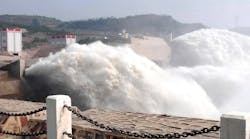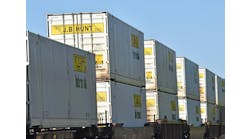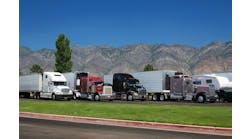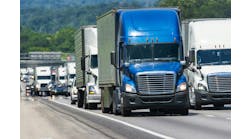The Three Gorges Dam, which is nearly 1.5 miles long and taller than the Washington Monument, was strategically placed on the Yangtze River in China’s Hubei province to control flooding and generate electricity to power the country’s rapid industrialization. Due to the record deluge of rainfall, the world’s largest hydroelectric dam, which has a volume of 39.3 billion cubic meters, is at risk of breaking, which would kill or displace millions, flood China’s cradle of manufacturing, and create massive disruptions in the global supply chain. Many highly populated cities have already seen historic flooding.
As an early indicator, the global supply of personal protective equipment, needed to contain a resurgence of the COVID-19 pandemic, has been delayed by weeks, Reuters reported.
The integrity of that supply chain is already precariously unstable due to a legion of disasters emanating from China in 2020. Foremost of these was the appearance and global spread of the novel coronavirus that causes COVID-19. China did not react quickly to contain the pathogen and allowed 5 million people to leave Wuhan, the coronavirus epicenter, prior to the mandated quarantine. The pandemic has reportedly killed an estimated 652,000 people globally, with 150,000 in the United States. The full impact on global economies and health is immeasurable.
The dam is upstream of major manufacturing hubs Wuhan and Jiujiang, along with Shanghai 1,000 miles farther down at the coast. Flooding has already caused immense devastation.
The U.S. is also at odds with China due to grievances ranging from intellectual property theft to human rights abuses.
Mike Pompeo, U.S. Secretary of State, aired these grievances against the Chinese Communist Party (CCP) in an incendiary speech on July 24 from the Nixon Library:
“We imagined engagement with China would produce a future with bright promise of comity and cooperation,” Pompeo said, recalling the idealized relations President Richard Nixon envisioned when he first visited the country in 1972. “But today – today we’re all still wearing masks and watching the pandemic’s body count rise because the CCP failed in its promises to the world.
“We’re reading every morning new headlines of repression in Hong Kong and in Xinjiang,” he continued. “We’re seeing staggering statistics of Chinese trade abuses that cost American jobs and strike enormous blows to the economies all across America, including here in Southern California. And we’re watching a Chinese military that grows stronger and stronger, and indeed more menacing.”
On July 25, the U.S. ordered the Chinese Consulate General in Houston to close after becoming convinced the building served as the headquarters for a Chinese-sponsored espionage ring. Earlier in the week it was reported that the Chinese were burning papers outside of the consulate.
The U.S. trucking sector should follow these events closely, as changes may occur rapidly that transform the nature of the trucking business. In the short term, disaster relief supplies and food may need to be expedited to China as millions of hectares of crops have already become inundated.
And while trucks and equipment are built in North America, parts and materials are sourced from China, and many automotive factories are downstream from the dam. In the near future, there may be some difficulty getting those parts.
It’s also extremely difficult to get any substantial facts out of China concerning the flooding. The BBC reported on July 23 that 150 had died. On July 5, Reuters said that 130 had died. Between July 5 and 23, severe flooding ravaged the countryside, with the Three Gorges floodgates opening up to prevent overflow. An estimated 38 million people were displaced, and 28,000 homes were destroyed, so the low death count should be met with some skepticism.
According to Radio Free Asia, “Chongqing police have issued an emergency warning that anyone found to have posted news of the flooding online in an ‘irresponsible’ manner will be immediately detained.”
In his speech, Pompeo alluded to China’s reluctance for transparency: “President Reagan said that he dealt with the Soviet Union on the basis of ‘trust but verify.’ When it comes to the CCP, I say we must distrust and verify.”
On July 21, the People’s Republic of China’s state-run press outlet revealed the dam had become “deformed slightly.” Youtube videos seem to indicate the problem is much worse. If they have not already done so, trucking companies should immediately find out how these events will impact their business so they can react appropriately.
In the long term, the trucking industry may see more business due to manufacturing companies returning to America.
"I think the transportation sector in America will see a boost," said Rosemary Coates, executive director of the Reshoring Institute. "There's no question in my mind that companies are considering reshoring and bringing manufacturing back."
She acknowledged both President Trump and the presumptive Democratic candidate for president, Joe Biden, have platforms based around the "Made in America" movement, though neither has released detailed strategies yet.
"No matter who is elected, I think there's a general sentiment to move manufacturing back to the U.S.," she said.
Coates previously worked in China to develop factories there, as well as move them back to America when economically viable. Some factors working against a wholesale abandonment of China include losing machine tools that are now part of the CCP's infrastructure.
"Tools and dies become part of Chinese infrastructure," she said. "I've had to have some hard conversations with CFOs and tell them, 'You’re never going to get those tools and dies back; You’re going t have to write them off.'"
Paying Chinese workers' employment contracts off, as well as creating new global competitors also factor into the decision.
"If you decide to leave, they’re not going to forget how to make your product," Coates said.
"Natural disasters are something that we need to pay attention to, but I think in the longer term it is probably not going to affect much of anything," Coates said of the recent flooding in China.
The dam breaking would alter that, though.
"If the Three Gorges dam broke, it would be horrendous for sure," she said. "Terrible loss of life and terrible flooding."



